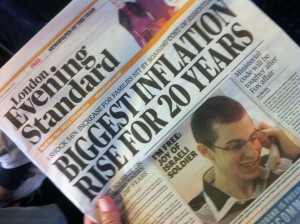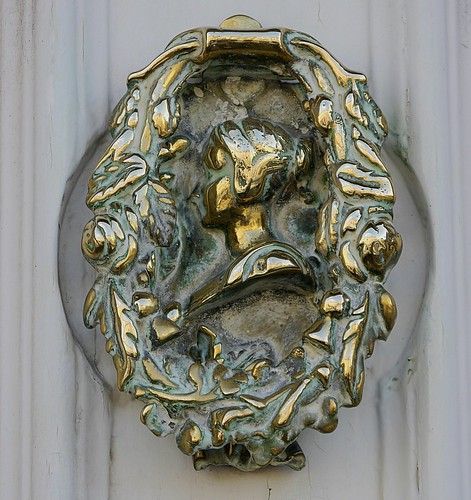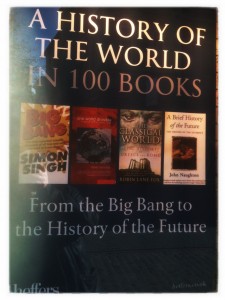Photographed in the American Cemetery in Madingley, near Cambridge, where nearly 4,000 US soldiers, sailors and airmen killed in World War II are buried.
The march of folly
The nemesis that perceptive economists like Paul Krugman have been predicting has arrived: stagflation — the grim confluence of inflation and economic stagnation. And what’s really eerie is how nobody in power in Britain can talk about it, let alone admit it. As Will Hutton puts it in today’s Observer.
The way we analyse and discuss our plight is crazily upside down. The Department for Business, which does have some interesting ideas for how to promote innovation, is browbeaten by the wider politics into making it a priority to take the ‘burden’ off business, allegedly to stimulate growth. Yet on most benchmarks, the UK is already the most lightly regulated member of the EU. It is absurd to characterise regulation and red tape as principal sources of the UK’s ills. This is voodoo economics.
Meanwhile, the story is nurtured that the coalition’s judicious austerity plans that were firmly on track are being derailed only by the crisis in the eurozone – the consequence of the madcap project to create a single currency in Europe. The enemies of the piece are thus deluded Europeans, anti-enterprise officials, unresolved global imbalances, excessive regulation and the 50p top rate of income tax, not to mention Gordon Brown’s legacy. There is nothing wrong – or so runs this line – with the gallant coalition’s economic strategy.
It is a story a lot of powerful and influential people – in finance, business, politics and the media – need to believe to cover their support for the coalition’s epic misjudgment when it took office. This was the decision to withdraw demand at a rate of 2% of GDP every year for four years in the wake of the biggest financial crisis in our history, alongside private sector debt levels higher even than in Japan before its lost two decades of growth.
Yep. So what we’re in for is a decade — maybe more — of stagflation. A re-run of Japan’s catastrophe. It’s nuts — and yet it’s happening before our eyes.
Knock, knock
Door-knocker on Hannah More‘s house in Great Pulteney Street, Bath.
Digital Darwinism
This morning’s Observer column.
This is a story about digital Darwinism. Once upon a time, the abiding nightmare of authors and students who used their PCs and laptops to compose books, dissertations and essays was that a random accident – theft of a laptop, perhaps, or a hard-disk crash – would be enough to vaporise years of irreplaceable work. So we all resorted to primitive schemes to protect against that terrible eventuality. In the early days, these took the form of piles of floppy disks stored at other locations; after that, we “burned” the precious files on to blank CDs; later still, we copied them on to USB sticks and flash drives that went in our pockets or on our keyrings; finally, we were even driven to emailing the damned things to ourselves.
Then along came an idea that made all these stratagems look, well, clumsy. It was called Dropbox. You logged on to the Dropbox site, registered (for free) and downloaded a small program (called a ‘client’) on to your computer. Once installed, this program created a special folder – helpfully labelled “Dropbox” – which appeared on your desktop. From then on, you saved any file that you wanted to back up in your Dropbox folder.
So far, so mundane. But even as you continued with your writing, the Dropbox client was busy in the background…
From today, focussing is dead
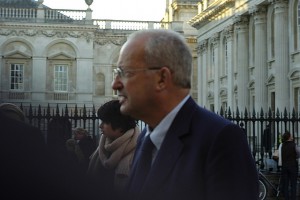 Like many photographers, I’m obsessed by sharpness, by which I generally mean accurate focussing. I hate pictures in which the prime subject isn’t sharply in focus — which is one of the reasons I was fed up with this picture I took last Saturday of David Sainsbury, who has been elected Chancellor of Cambridge University in succession to Prince Phillip. It could — should — have been such an interesting picture. The light was lovely, and the juxtaposition of the man with the Senate House over which he will soon be presiding would have been perfect — if he’d been in focus. But I was using a Leica M8 while clumsily holding a gown and a bag and I blew it. (Of course you could quite reasonably object that if I’d been using a simple, auto-focussing point-and-shoot camera I’d have got the picture, and you’d be right, but my attachment to obsolete technology runs deep).
Like many photographers, I’m obsessed by sharpness, by which I generally mean accurate focussing. I hate pictures in which the prime subject isn’t sharply in focus — which is one of the reasons I was fed up with this picture I took last Saturday of David Sainsbury, who has been elected Chancellor of Cambridge University in succession to Prince Phillip. It could — should — have been such an interesting picture. The light was lovely, and the juxtaposition of the man with the Senate House over which he will soon be presiding would have been perfect — if he’d been in focus. But I was using a Leica M8 while clumsily holding a gown and a bag and I blew it. (Of course you could quite reasonably object that if I’d been using a simple, auto-focussing point-and-shoot camera I’d have got the picture, and you’d be right, but my attachment to obsolete technology runs deep).
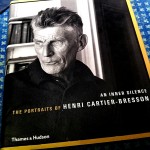 On the other hand, accurate focussing isn’t everything. One of my favourite books is An Inner Silence: The Portraits of Henri Cartier-Bresson
On the other hand, accurate focussing isn’t everything. One of my favourite books is An Inner Silence: The Portraits of Henri Cartier-Bresson. It has some truly wonderful, insightful portraits, but by my reckoning in at least 10 per cent the subjects are slightly out of focus. And yet in most of those cases it doesn’t really matter. So perhaps my obsessiveness with sharpness is a symptom not of aesthetic sensibility but of nerdish perfectionism.
“From today, painting is dead” is an aphorism often attributed to Paul Delaroche, a 19th century French painter, upon seeing the first Daguerreotypes (though Wikipedia maintains there is no compelling evidence that he actually said it). But the phrase came to mind as I looked at the first pictures from the Lytro lightfield camera, which goes on sale next year. Based on some discoveries made by a Stanford student, Ren Ng, the camera turns the normal process of compose-focus-shoot on its head. Instead you just point the Lytro at whatever you want to photograph, and then you can retrospectively focus in on any part of the image. As the New York Times explains: “With Lytro’s camera, you can focus on any point in an image taken with a Lytro after you’ve shot the picture. When viewing a Lytro photograph on your computer, you can simply click your mouse on any point in the image and that area will come into focus. Change the focal point from the flower to the child holding the flower. Make the background blurry and the foreground clear. Do the opposite — you can change the focal point as many times as you like.”
The company behind the technology calls this “focussing after the fact”.
Since you’ll capture the color, intensity, and direction of all the light, you can experience the first major light field capability – focusing after the fact. Focus and re-focus, anywhere in the picture. You can refocus your pictures at anytime, after the fact.
And focusing after the fact, means no auto-focus motor. No auto-focus motor means no shutter delay. So, capture the moment you meant to capture not the one a shutter-delayed camera captured for you.
It’s intriguing and counterintuitive — as some of the examples provided on the site demonstrate. And of course the magic won’t work on paper, so if Lytro pics are to be exhibited in all their counter-intuitive glory they’ll have to be displayed on computer monitors. Still, it’s an interesting development.
The camera comes in two flavours, depending on the amount of onboard storage you want. The 8GB model holds 350 pictures and costs $399, while the 16GB model holds 750 and costs $499. The devices start shipping in “early 2012”.
Oh — and they only work with Apple machines. For now.
A duet with SIRI
The first love song to a robot?
The Fox at bay
Lovely sketch by Simon Hoggart about Liam Fox’s extraordinary moral and linguistic contortions.
And then there is Liam Fox, who spoke to the Commons on Wednesday. What a farrago of self-regarding, self-congratulatory self-exculpation it was! He even contrived to tiptoe round the notion that he had done anything wrong. “The ministerial code has been found to be breached,” he said, as if it were like a hurricane battering a levee, a force of nature for which nobody is to blame.
And why had he come under attack? Because for more than a year, he had bent the rules, constantly and persistently, in the face of warnings from his most senior civil servants? Hardly. His fall was, in part, the result of machinations by unnamed enemies. It was the result of “personal vindictiveness and even hatred. That should worry all of us.”
Time and again he implied he was the victim. But all had not been lost. There had been a tidal wave of support and encouragement from everyone: fellow MPs and cabinet members, constituents, family and friends, and most of all from his wife, who had offered “grace, dignity and unstinting support”.
You would imagine that he had, through no fault of his own, contracted a life-threatening illness, his fear and pain swept aside by the kindness of everyone around him. “I may have done wrong, or possibly not,” he was saying. “That doesn’t matter because everybody loves me.”
The truth about Fox is that he’s a nasty, possibly sinister, neo-Con. And now he’s going to be a nasty, possibly sinister, problem for Cameron.
October evening
Seen in a car park on my way home from Liverpool today.
Standing out
Test shot of a 90mm Summicron f2 lens.
Pleasant surprises #362
Just as the advance publicity for my new book begins to gather momentum (we’ve just learned, for example, that a major US university is planning to use it as a class text), my earlier book
seems to be having a new lease of life. This is the window display in Heffers, the big Cambridge academic bookshop today. (My Brief History is the title on the far right.)
Thanks to Brian for the pic.


